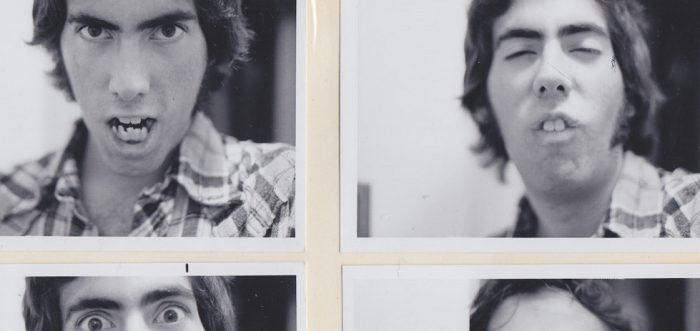The latest documentary from Matthew Bate follows one of YouTube’s first viral video stars – a man who took selfies before they were called selfies – Sam Klemke. Funded in part by Screen Australia and the Adelaide Film Festival, Sam Klemke’s Time Machine is Bate’s second feature, sitting as a worthy follow-up to his debut Shut Up, Little Man! and a fantastic addition to the current Australian cinematic landscape.
Bate’s documentary – which operates in more of a collage or essay film mode until its third act – traces the life of Klemke from past to present through his own footage, juxtaposing his personal end-of-year wrap-ups with the tale of the Voyager, which was launched into space in 1977 carrying the Golden Record containing music and imagery depicting the history of humanity. We watch as Klemke gains weight, grows facial hair, moves out of his parents’ place, moves back into his parents’ place, travels through different girlfriends, questions his sexuality, stumbles, falls, crumbles, and finds himself again, watching as these cycles repeat themselves over time. Bate uses Klemke as a counterpoint to Carl Sagan’s project throughout, he acts as a sobering portrayal of the harsh reality of human life in contrast to the idealised view of humanity inherent in the Golden Record that we thrust into space.
That record, a collective work put together by many people, had its contents determined by democracy, seeing all nudity excised from its cargo and the democratisation of the selection of important imagery and music. Klemke, who is removed from this film’s editing process, gets no such pleasure, with Bate willing to explore all of his subject’s flaws and faults, making his tale (in some ways) even more universally applicable. Its third act – one that feels like more of an extended epilogue, as Klemke’s logical conclusion (a finality that would see the end of his videos) has thankfully not yet been reached – sees us move into the present as Bate switches modes, conducting a fourth-wall breaking look at the construction of Sam Klemke’s Time Machine, with a more than satisfying conclusion tying up the film’s loose narrative ends.
The strength of Sam Klemke’s Time Machine, beyond the charisma of Klemke himself, lies in the extensive access to video material. Between Little Man and this film, Bate showcases a unique ability to filter through hundreds upon hundreds of hours of content to deliver a wholly satisfying and concise narrative that manages to say a great deal about human experience without ever feeling too broad, nor too precise. This is a task that Klemke – always outgoing and outrageous, ever playing the flamboyant funny man in the face of extremely trying times – seems unequipped to perform himself, too self-interested and directionless to put in the time necessary to distill a cohesive narrative from his abundance of self-shot footage. There’s a universal theme in the notion – one that is sure to become more apparent as technology and social media progresses – that whilst we curate our online representation on a daily basis, we would be flummoxed if put in the role of self-archivist.
In one sense, Bate’s film also becomes an extended exploration of truth and reality in cinema. Without wanting to spoil the ending, Klemke’s apparent lack of filter – which sees him filming all of his highs and all of his lows, most apparent in a sequence that sees him discussing the consistency of his urine that he has kept sealed in a tupperware container – helps Bate reach these ends. Klemke is a man unafraid to reveal the seams holding together the fabric, and Bate’s embrace of this mantra, and subsequent look behind the creation of truth and reality in film is fascinating.
Overall, Sam Klemke’s Time Machine is a fascinating documentary on a number of fronts; not only does it speak to a universal human experience, it also speaks to the practice of filmmaking and the notion of directors shaping their stories. It’s an extremely strong project from Bate, who is fast cementing himself a place as one of Australia’s most interesting documentary filmmakers.
Around the Staff:
| Conor Bateman | |
| Lidiya Josifova |

